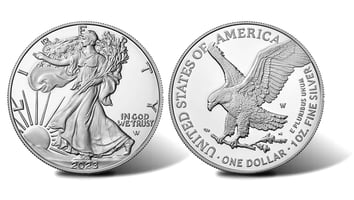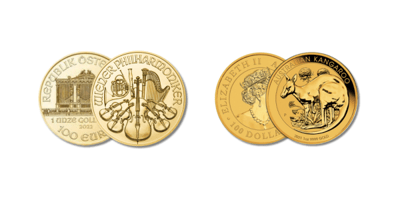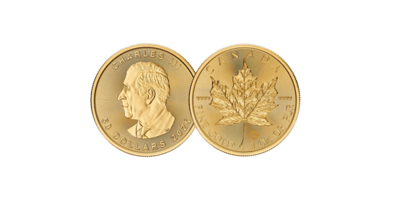"The market takes the stairs up, and the elevator down."
The Gift of Estate Planning
Why build wealth if not to take care of your loved ones?
Yet, some investors neglect estate planning because they don’t believe it’s a necessary component of their financial plan. In truth, they couldn’t be more wrong.
Estate planning is simply creating a plan that allows you to dictate how your assets are transferred after your death in the most efficient manner possible. Regardless of how many assets there are in your estate, if there’s anything left after you die, having a concrete plan in place can benefit both you and your heirs.
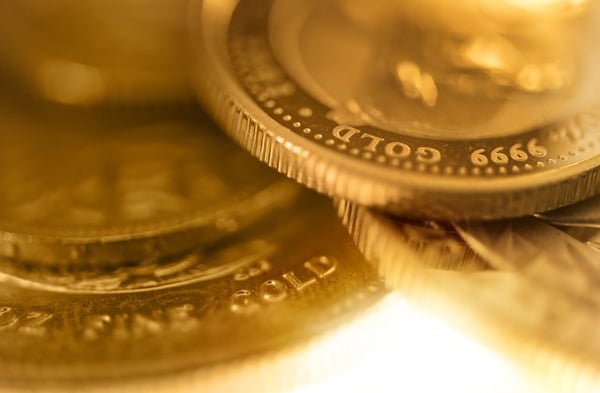
When it comes to estate planning, collectibles and precious metals present unique challenges. It is estimated that collectibles and precious metals represent 10-15% of the $41 trillion in wealth that is expected to change hands over the next few decades as baby boomers leave their estates to their beneficiaries.
For some families, coin collections, accumulated bullion, and precious metals certificates represent an even more significant portion of their net worth. However, without proper planning, heirs may find themselves beset by high tax rates, liquidity issues, family disputes over ownership, and other problems when an estate contains precious metals and other tangible assets.
As a matter of fact, we’ve personally run into several cases where former clients passed on and the estates were closed without the heirs ever knowing about the precious metals that should rightfully be theirs.
Our Preferred Client Relations Manager, Brian Zweig, recounts his experience, “As I have reached out to many clients regarding their accounts with us, I have run into several different situations. I reached a woman that did not know her late husband had invested $500,000 in precious metals. This was a few years after the estate had closed and she had no idea. I had another client who passed away 6 years prior and his son didn’t know about a $100,000 investment in silver that was then worth $350,000.”
Once taken care of, these heirs were grateful for the windfall, but you don’t want to leave your heirs in a situation where they are unaware of or unable to access what is rightfully theirs. In these cases, it took months and months of trying to hunt down the heirs so that ownership could be properly transferred while the metals sat in a depository.
It’s not a fun or exciting topic, but if you own precious metals, then you need to take steps to make sure your heirs are taken care of once you pass. Other advantages of proactive estate planning include helping to alleviate the family squabbles over items and avoiding probate and will contests.

How to Set Your Heirs Up for Success
Handling precious metals and numismatics in estate planning is very similar to that of any estate plan where the client has significant tangible assets.
- Do you have a current inventory of your collection, including location, cost basis, and description of the items?
- Do your heirs know how and when to maintain and/or liquidate the tangible items based on the markets?
- Will your heirs know who to rely on to give a fair deal in case they liquidate?
- Do they know how to access secured and stored items? This should include metals that are held overseas or in a depository, as well as in your personal possession.
- Have you set up specific delineation of the gifts and the terms of those gifts, whether intended for individuals or charities?
If you’re able to answer these questions, then your estate is well on its way to being set up to pass your precious metals and/or numismatic coins to your surviving heirs. If not, it might be worth it to talk to professionals on how best to set up these arrangements. Otherwise, you risk having the precious metals and coins mishandled in the estate (which often happens with any sort of tangible property).
Taxes on your Estate
It is important to remember that, in general, precious metals like gold, silver, palladium, and platinum are taxed as “collectibles,” not as “investments.” This includes coins, bars, bullion, certificates and exchange-traded funds (ETFs). Precious metals, numismatics, or anything else that can be labeled a collectible is subject to a 28% long-term capital gains tax, instead of the more favorable long-term gains tax rate at 15% or 20% based upon income levels and filing status, while collectibles purchased and held less than one year are taxed at personal income tax rates.
Although a higher tax rate should not deter people from buying gold and other precious metals, it is important to consider the high tax treatment when you or your heirs decide to cash in the earnings. Coins present an additional valuation issue when they have a numismatic worth exceeding their face denomination. The issue of valuation is exacerbated when the coins have enhanced value because of rarity, condition, or as a collectible set.
While the tax consequences are significant for collectibles, this is just one of the many issues to consider. Before collectibles can be transferred, issues of ownership and authenticity need to be resolved. The IRS has determined that stolen, forged, or otherwise illegally acquired objects must be included in the decedent’s gross estate, which means you would be forced to pay taxes on holdings with no real value.
This is why it is so important to purchase your precious metals and numismatics from a reputable dealer.
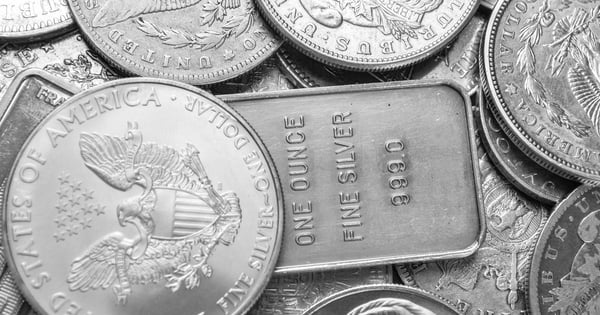
Valuation of Precious Metals
Another challenge is the valuation of collectibles and precious metals. The general rule for federal estate taxes is that items are valued at their fair market value, but the valuation of collectibles is a very subjective undertaking and subject to challenge. Coins often carry a different value from their face value because of their precious metals content and/or rarity.
Just like the stock market, collectible values can rise and fall, and disposing of collectibles at the wrong time can lead to a loss. Just because you as a numismatic coin collector or precious metals owner might have a strong knowledge of the nature and scope of the market, doesn’t mean that your heirs will understand how these items are valued.
Additionally, when it comes time to sell collectible items, money that is paid to buy, appraise, and maintain the items must be added to determine the “basis.” The basis is subtracted from the sale price to determine the profit or gain that is taxed. Determining gain made on a collectible will vary depending on whether the item was purchased, a gift or inherited.
In many cases, we’ve found that the heirs choose to liquidate rather than continue to hold these assets simply because they have no knowledge of the precious metals or rare coin markets. Because of this, they often lose out on the opportunity to get the most value out of the investments that you’ve carefully made over the course of your lifetime.
Another Option for Passing on Ownership
There are rules for collectibles that allow you to remove items from your estate on a tax-advantaged basis as a gift. You can pass ownership, directly or indirectly, to your heirs to help accomplish estate planning goals and any future appreciation on the items would belong to the recipient.
Gifts are considered non-taxable up to $17,000 per recipient per year and can be given to any number of people. Taxpayers are allowed to make gift transfers of up to $12.92 million during their lifetime. Recipients don’t have to pay taxes on these gifts, either.
In 2024, these figures will go up to $18,000 for annual gift tax exemption, and $13.61 million for lifetime gift tax exemption.
In addition to the annual exclusion, much larger gifts may be made to individuals or in trust by utilizing the donor’s lifetime exemption from gift tax. The use of Family Trusts or Limited Liability Companies is a good way to provide structure and leverage for these gifts depending on the size of your estate.
.png?width=600&height=338&name=estate4%20(1).png)
Conclusion
Many people who own collectibles and precious metals aren’t aware of their estate and charitable planning options, but hopefully you can take the knowledge in this article to start planning for a better future for you and your heirs. The last thing you want is to leave them with is the hassle of unnecessarily high taxes, liquidity issues, or family disputes over ownership.
“There have been many situations where I have had to go as far as digging through obituaries to find out who is the next of kin for a client of ours that still held assets in their name. Their heirs often ask me why we didn’t reach out earlier, but in many situations, we weren’t even notified that the client had passed. I tell my current clients to make sure their heirs know what they have, where it is, and that we can help,” says Zweig.
It makes sense to take a proactive stance towards estate planning, especially when precious metals and other tangible assets make up any portion of your portfolio.
Make One Simple Call to ASI Today…
Is your estate in order? Only you can answer that.
However, you would not believe how often we found out, last year alone, that the answer to that question was “No.”
It is too easy to get your affairs in order. We can help. Call us today at (800) 831-0007 or email us today. You and your heirs will be glad you took the time now to save time, money, and unnecessary frustration later.
If you do nothing else… do this today!


